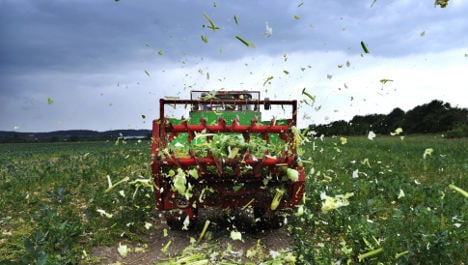The Northern Horticultural Association and the Farmers’ Association of Hamburg announced Friday they were considering legal action over what they say has needlessly damaged their business.
“With this claim, we are taking action against the warning by the Robert Koch Institute (RKI) from last Wednesday against the consumption of vegetables in northern Germany,” said Paul Helle, the head of the Northern Horticultural Association, which represents small commercial farms known as market gardens.
The RKI, the government’s top advisory body on public health, this week warned against eating uncooked tomatoes, cucumbers and leafy salads in northern Germany after the outbreak of the potentially deadly E. coli bacteria.
Helle said that since Wednesday he had counted at least 100 market gardens in Hamburg that had suffered financial losses. Across the whole north of the country, more than 1,000 businesses had been affected by the RKI warning, he said. This number could climb further.
“From the severity of the damage, the situation is definitely comparable to the one that existed 25 years ago during the Chernobyl catastrophe.”
The farmers’ group said they wanted to first investigate the precise extent of the damage before they mount their legal action.
Since the original warning, authorities in Hamburg have identified four cucumbers contaminated with the bacteria, which has killed five people and made hundreds sick. Three of the cucumbers came from Spain and the fourth is of unknown origin, though some media organisations have reported that it came from the Netherlands.
Farmers across northern Germany have spent the past two days disposing of tonnes of these products. Even after the Spanish link was established, consumers have remained sceptical of German produce.
“In Lower Saxony alone, five bulk purchasers have cancelled their orders of vegetables,” Axel Boese of the Professional Vegetable Gardeners of Northern Germany said on Friday. “Vegetable growers are being hit hard when consumers reject fresh vegetables for a few days.”
DPA/djw



 Please whitelist us to continue reading.
Please whitelist us to continue reading.
Member comments